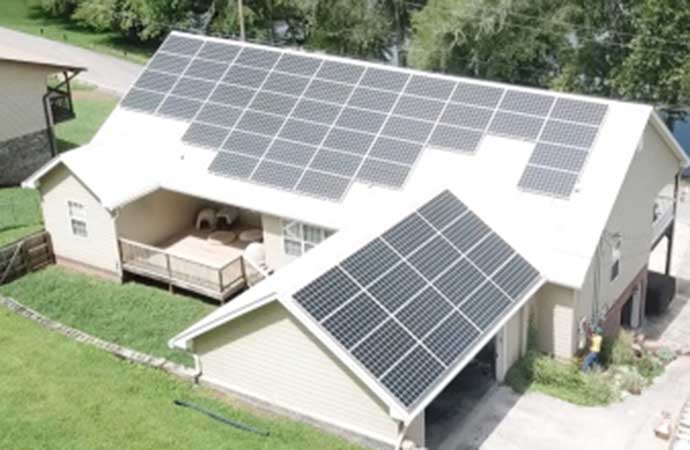ABSOLUTELY, the best in the Southeast. They are amazing!! They help me so much. They deserve 10 stars!! They can do everything!!!! Call them!!! Donna, at The Preserve Apartments in Cleveland, Tennessee….
What Happens to the Federal Solar Tax Credit After 2019?
An investment in solar energy could significantly impact your federal income taxes through a solar tax credit. But time is running out. The sun is setting on an opportunity for homeowners and business owners to take advantage of a 30% income tax credit. That savings is made possible through The Solar Investment Tax Credit, or ITC. This federal incentive has not only paved the way for U.S. solar industry growth (at a rate of more than 10,000% according to SEIA), but it has also allowed homeowners and business owners to embrace a clean energy source capable of indefinitely decreasing long-term energy costs.
Currently available for solar panel systems on both residential and commercial properties, the tax credit drops to 26% at the conclusion of 2019. This rate remains in effect through the conclusion of 2020. In 2021, the rate drops to 22%. After 2021, the residential tax credit completely phases out, however a 10% credit will remain in effect for businesses.
How does a federal tax credit work?

A tax credit reduces the amount of federal income taxes a person or company would otherwise be required to pay. With the ITC, the reduction is based on the amount an individual or business invests into solar property. So, let’s say you invest $12,000 in qualifying solar property before the end of 2019. At the existing solar tax credit rate of 30%, you would qualify for a $3,600 credit. Wait, and it goes down to $3,120 in 2020. In 2021, the credit would drop to $2,640. Wait even longer, and you’ll really miss out on potential savings. Once again, in 2022 the solar tax credit for homeowners completely disappears. However, as a business owner, your company could be eligible for a $1,200 credit at a rate of 10%.
Saving with solar power
As electricity costs from traditional sources continue to climb, switching to solar energy makes sense for many homeowners and businesses owners. A recent report from Lazard revealed the cost of producing one megawatt-hour of electricity is now around $50 for solar power. That’s less than half the cost it would take coal to produce the same amount of electricity. Bankrate has a closer look at the numbers and what they could mean in terms of savings for your home or business.
How do you qualify for the solar tax credit?
It’s best to verify all information with your tax representative, but for general purposes, here is an overview of what you can expect:
To take advantage of the 30% solar tax credit, you’ll need to:
- have your solar system installed by December 31, 2019
- own (and not rent – rental properties do not qualify) the home or business receiving the solar upfitting
- own (not lease) the solar panels
Since there’s no cap on how much your system costs, you’ll get to claim the full 30% off regardless of whether you spend $10,000 or $100,000 on a solar system installation. Be sure to document and save all receipts related to the project! Qualifying expenses generally include:
- Solar consulting fees
- Solar equipment
- Tools and equipment
- Installation fees
- Engineer fees
- Electrician fees
- Permitting fees
At Tri-State Electrical Contractors, our solar division regularly designs and installs custom solar energy systems for residential, commercial and industrial settings throughout Georgia, Tennessee and Alabama. Timing is everything. Contact us today so you can take full advantage of the federal solar tax credit before it decreases.















